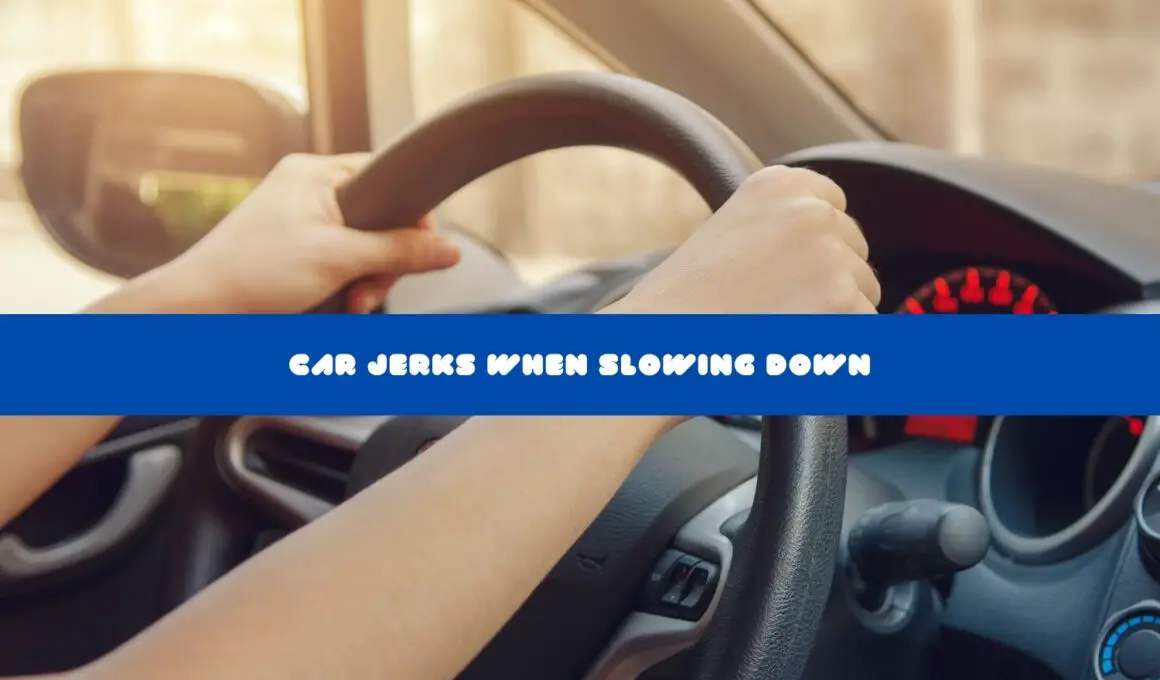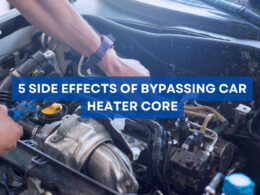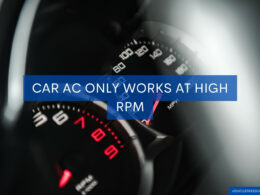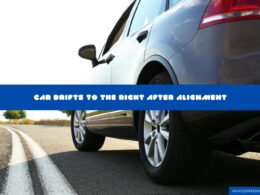In This Article Show
Have you been experiencing car troubles where your car begins to jerk whenever you slow down, and you’d like to know the cause and how to fix it? Then you should check this out because this article will help to shed some light on this issue.
Car troubles, in general, can be problematic no matter how small they might seem, especially when you are new to driving and you aren’t so sure about the cause.
Most times, when a car begins to give unusual vibrations or sounds, it means there is a fault somewhere, and you need to see a mechanic.
If you begin to feel your car stuttering when you slow down or accelerate, then there’s most likely a fault with a component in your car that needs to be fixed asap.
Let’s look at some things that can cause your car to jerk.
Why Does My Car Jerk When Slowing Down?
When a vehicle jerks or stutters when decelerating, it’s often caused by some common things such as a faulty or leaking transmission, clogged fuel injector, damaged mass air flow meter (MAF), faulty throttle body, worn out clutch, damaged coil packs, damaged turbo, worn engine mounts, and a poorly timed gear shift.
1. Faulty or Leaking Transmission
This is one of the most common causes of car jerks because a car’s transmission is responsible for the smooth shifting from one gear to another, whether you’re decelerating or accelerating.
A faulty transmission will cause your car to jerk when you downshift because of its inability to shift from one gear to another smoothly.
One thing that can lead to a faulty transmission is low transmission fluids.
Transmission fluids are responsible for lubricating the metal parts in the gearbox, which makes it important to regularly check with your mechanic to see if they are at the right level.
Also, a faulty torque converter is another thing related to your car transmission that can cause your car to jerk. A torque converter is a part of the transmission that helps in controlling the rate at which the engine and transmission work.
When the torque converter is faulty, it’ll cause your car to jerk, especially if you’re driving at low speeds.
How To Fix
In this case, you can do nothing to help your car except visit a mechanic. Your mechanic will help check your transmission and service or replace it if necessary.
Also, you must check in with the mechanic regularly for you to know if your transmission fluid is at the right level, so it doesn’t cause unnecessary problems.
2. Bad Fuel Injector
Another thing that can cause your car to jerk is when you have a bad or clogged fuel injector.
This component is responsible for distributing petrol or diesel into your car engine. It/they (depending on how many cylinders your car has) are responsible for distributing the right amount of fuel into your car engine at the right time.
If it injects too much fuel or too little, then there’s something wrong with your fuel injector.
Sometimes, it might just be that the fuel injector is clogged with debris or the filter is faulty and this causes dirt to go into the engine.
Either way, a bad or clogged fuel injector can cause your car to jerk.
Although it might not be an issue with your fuel injector, you’d see your car’s engine warning light appear on your dashboard when there’s a fault with your engine.
Whenever this warning appears, do not hesitate to visit your mechanic.

How To Fix
First, you need to take your car to the mechanic and have them diagnose your car, and then clean or change the fuel injector.
3. Damaged Mass Air Flow Sensor (MAF)
The Mass Air Flow Sensor (MAF) is an important component that helps to measure the right amount of air that goes into the engine, and together with the engine control unit (ECU), helps to create a balance between the amount of fuel and air sent into the engine, to achieve optimal combustion.
When the MAF meter is damaged, it’s unable to measure the optimal amount of air needed which can cause an imbalance in the amount of air and fuel, which won’t allow optimal combustion.
Also, it might just be that the MAF is clogged with debris.
How To Fix
You need to visit your mechanic to check the problem, and if your car’s MAF sensor is clogged with debris, you might need to get it cleaned.
However, some MAF sensors come with an internal heating component that heats up to a certain temperature to measure the right amount of air correctly. You might need to change the whole MAF sensor if it’s faulty.
4. Faulty Throttle Body
The throttle body in your car regulates the air intake into the car engine.
A damaged or leaking throttle body will cause your car to jerk when you slow down because of its inability to control the air supply going into the engine.
A faulty throttle body will affect the proper distribution of air and fuel into the engine, which will cause your car to stall and generally lead to poor engine performance.
How To Fix
Visit the mechanic to have the throttle body cleaned or changed.
5. Damaged Ignition Coil Packs
An Ignition coil pack is something like a transformer that takes power from your car battery and transforms it into a spark that ignites your engine’s air and fuel combination.
If your car begins to jerk or misfire when you slow down, it might be a sign that your coil packs are damaged.
How To Fix
If your mechanic has confirmed the issue with your coil packs, you need to replace them.
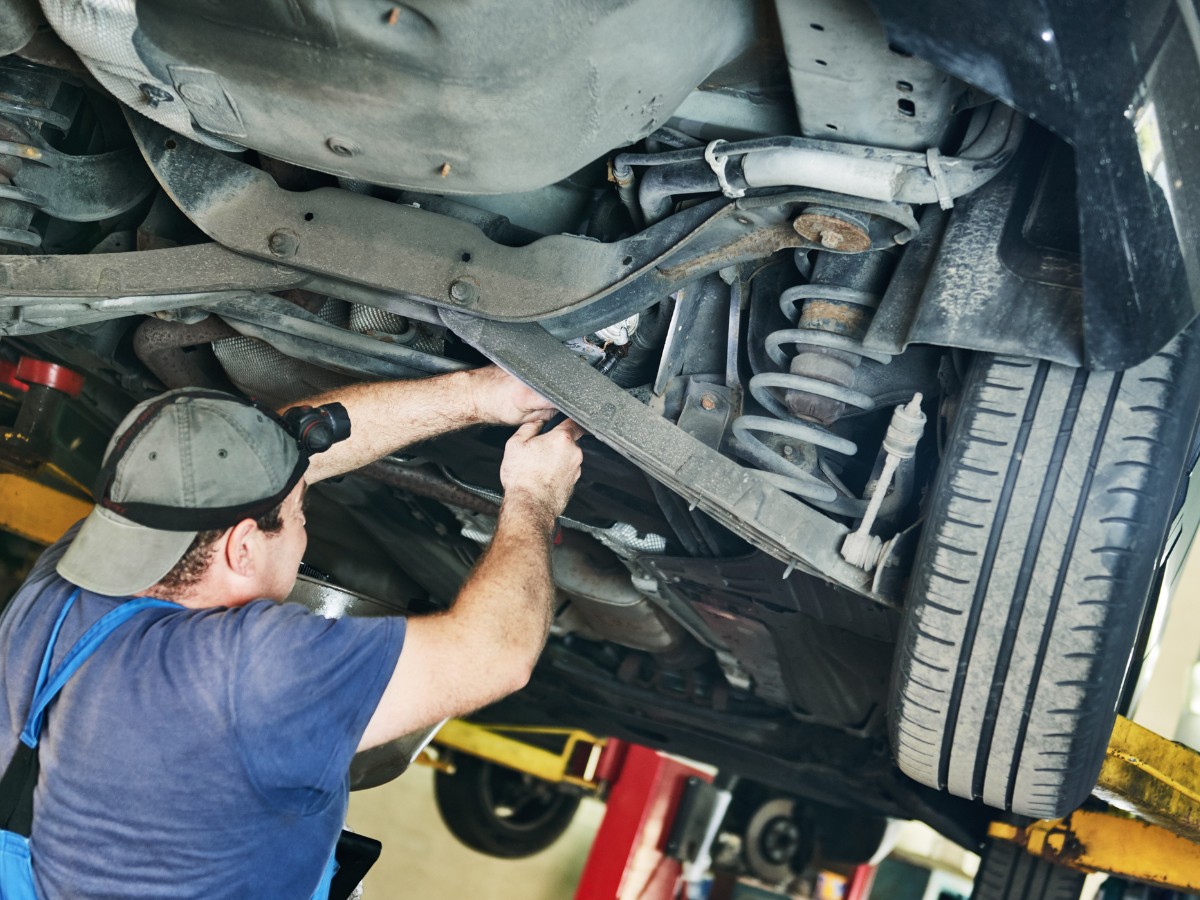
6. Damaged Turbo
A damaged turbo is also one of the things that can cause your car to jerk when you slow down, although this rarely happens.
A damaged turbo would cause your car to operate abnormally, which can cause your car to jerk when you slow down.
How To Fix
To fix this, you either repair the turbo or replace it with a new one, and unfortunately, fixing issues with car turbos can be costly.
7. Worn Out Clutch
Only people who drive sticks experience this sort of problem as automatic cars do not have clutches.
A clutch serves as the connection between the engine and the transmission in a car. When it gets worn out, there won’t be a proper connection that allows a smooth gear shift.
You’ll feel your car jerking whenever you drive at low speeds if it has a worn-out clutch.
Usually, a clutch is meant to be changed after about 150,000 miles, although this doesn’t apply to all, but you should get a new one if your car has done 150,000.
How To Fix
The only way to fix this is to get the clutch changed.
8. Poorly Timed Gear Shift
Sometimes it might not be an issue with the engine or any other mechanical part of the car. It might just be that your gear shift was poorly timed. However, this only applies to those who drive manual cars.
This will most likely happen if you’re not so experienced with a stick or if you haven’t driven a manual car in a long while.
9. Worn Engine Mounts
Engine mounts help to hold a car engine in place so it doesn’t shift out of position.
When they get worn out, this can cause your car’s engine to move around abnormally and touch other components, which can cause your car to jerk.
How To Fix
The only way to fix this is to get your engine mounts replaced.
Final Thoughts
It’s important that you pay attention to your car and watch out for any unusual sound or vibration so you can fix it before the problem escalates.
Also, do ensure to visit the mechanic as often as possible, especially if you’re on the road a lot, because you never know when a problem will come up with the car.
It’s often advised to visit the mechanic every 12,000 miles and not until you notice a problem. Regular check-ups might save you from heavy spending later in the future if the fault is diagnosed early.
More car guides on FearlessGearless:






